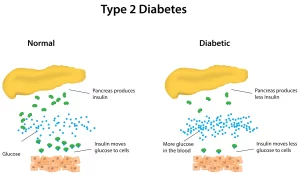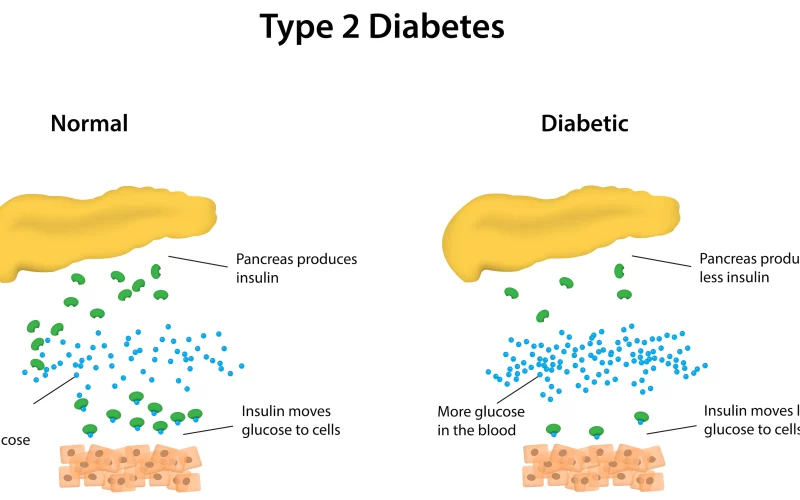Introduction
In the realm of chronic health conditions, Type 2 diabetes is a prevalent and often misunderstood adversary. To embark on a journey towards better understanding, we need to unravel its intricacies. This comprehensive overview will shed light on what Type 2 diabetes is, its risk factors, symptoms, and how it profoundly affects the body. Knowledge is your shield in the battle against this widespread disease.
Defining Type 2 Diabetes
Type 2 diabetes, often referred to as adult-onset diabetes, is a chronic metabolic disorder characterized by elevated blood sugar levels. It is the most common form of diabetes, accounting for the majority of diabetes cases worldwide. Unlike Type 1 diabetes, which is an autoimmune condition where the body does not produce insulin, Type 2 diabetes involves a complex interplay of insulin resistance and impaired insulin secretion.

The Risk Factors
Understanding the risk factors for Type 2 diabetes is crucial for prevention and early detection. Some key risk factors include:
- Age: While it was historically known as adult-onset diabetes, Type 2 diabetes is increasingly diagnosed in younger individuals. However, age remains a significant risk factor.
- Family History: A family history of diabetes can elevate your risk, indicating a genetic predisposition.
- Obesity: Excess body weight, especially around the abdomen, is a major risk factor. It contributes to insulin resistance, a core feature of Type 2 diabetes.
- Physical Inactivity: Leading a sedentary lifestyle is associated with a higher risk of developing diabetes.
- Diet: A diet high in processed foods, sugary beverages, and excessive carbohydrates can contribute to insulin resistance and weight gain.
- Gestational Diabetes: Women who have had gestational diabetes during pregnancy are at an increased risk of developing Type 2 diabetes later in life.
Recognizing the Symptoms
Type 2 diabetes often progresses silently, and many individuals are unaware of their condition until complications arise. Recognizing the symptoms is crucial for early diagnosis and management. Common symptoms include:
- Frequent Urination: Increased thirst and frequent urination are early signs of diabetes.
- Unexplained Weight Loss: Despite an increased appetite, individuals with Type 2 diabetes may experience unexplained weight loss.
- Fatigue: Persistent fatigue and a lack of energy are often reported.
- Blurred Vision: Changes in vision can be a symptom of uncontrolled diabetes.
- Slow Healing: Wounds, cuts, or sores may take longer to heal.
- Yeast Infections: Recurrent yeast infections, especially in women, can be a sign of elevated blood sugar levels.
The Impact on the Body
Type 2 diabetes can have a profound impact on nearly every organ system in the body. Some of the key effects include:
- Cardiovascular Health: Elevated blood sugar levels increase the risk of heart disease, including heart attacks and strokes.
- Kidney Function: Diabetes can damage the kidneys, leading to chronic kidney disease and the need for dialysis.
- Eye Health: The condition can cause diabetic retinopathy, potentially leading to vision impairment and blindness.
- Nerve Damage: Peripheral neuropathy can cause tingling, numbness, and pain in the extremities.
- Foot Complications: Diabetes-related foot problems can lead to infections and, in severe cases, amputations.
- Mental Health: Individuals with diabetes are at an increased risk of depression and anxiety.

Photo by Towfiqu barbhuiya: https://www.pexels.com/photo/vegetables-and-diabetes-equipment-11423202/
Conclusion
Type 2 diabetes is a complex and prevalent condition that affects millions of individuals worldwide. Understanding its risk factors, symptoms, and impact on the body is the first step in managing and preventing this disease. With knowledge as your ally, you can take proactive steps to lead a healthier life and reduce the risk of diabetes-related complications. Remember, education is the cornerstone of diabetes management.












